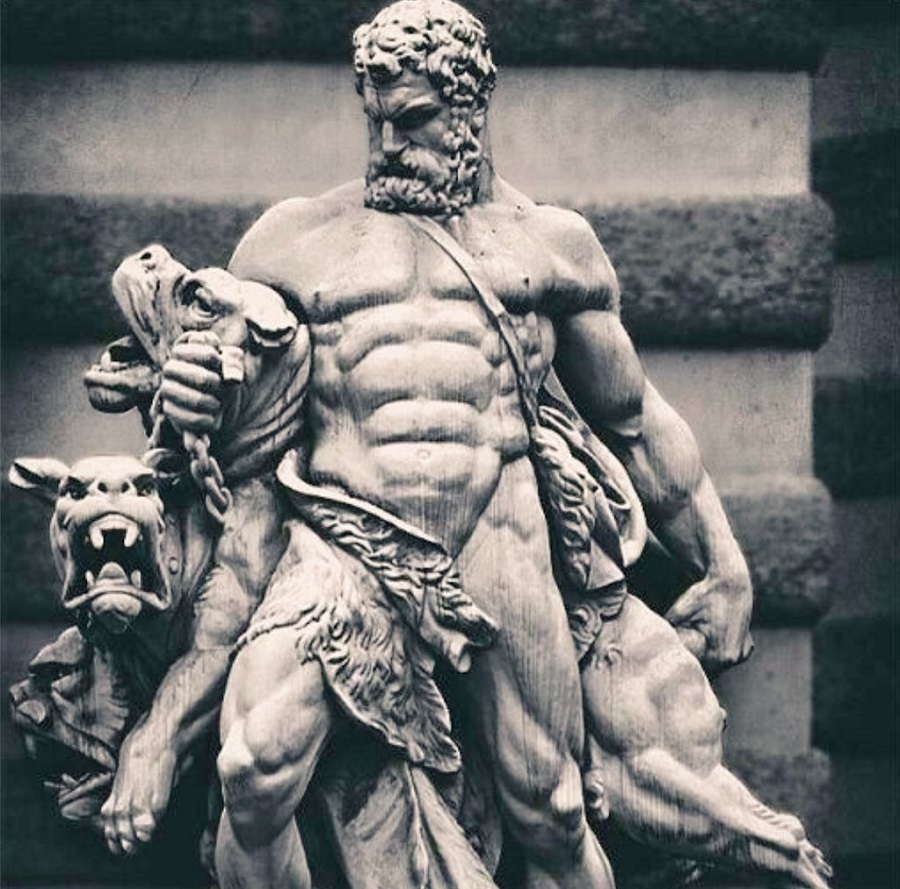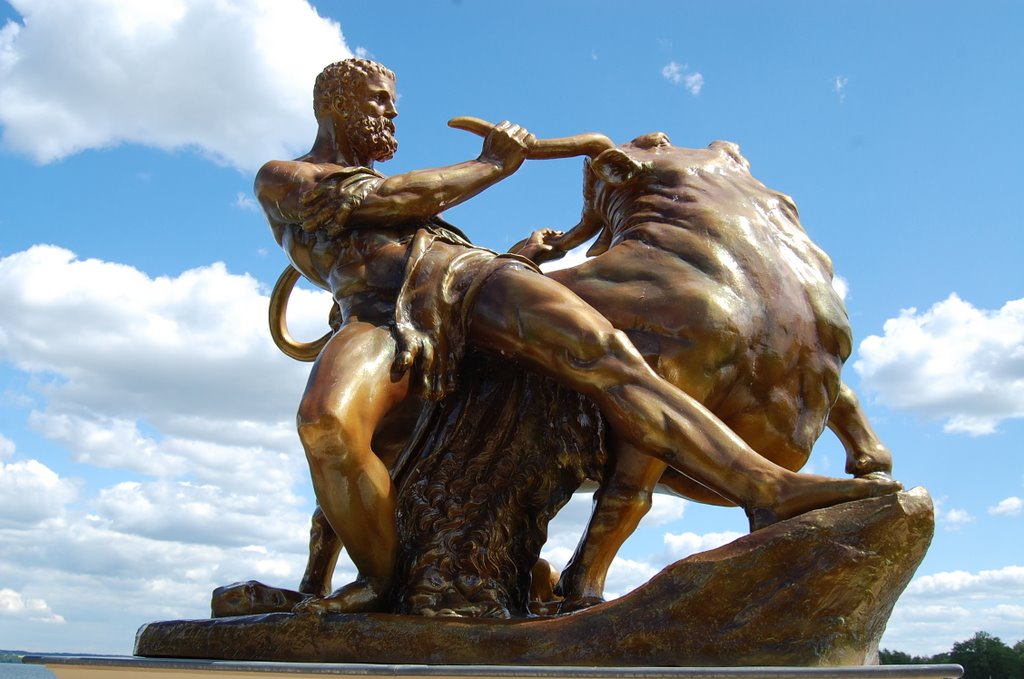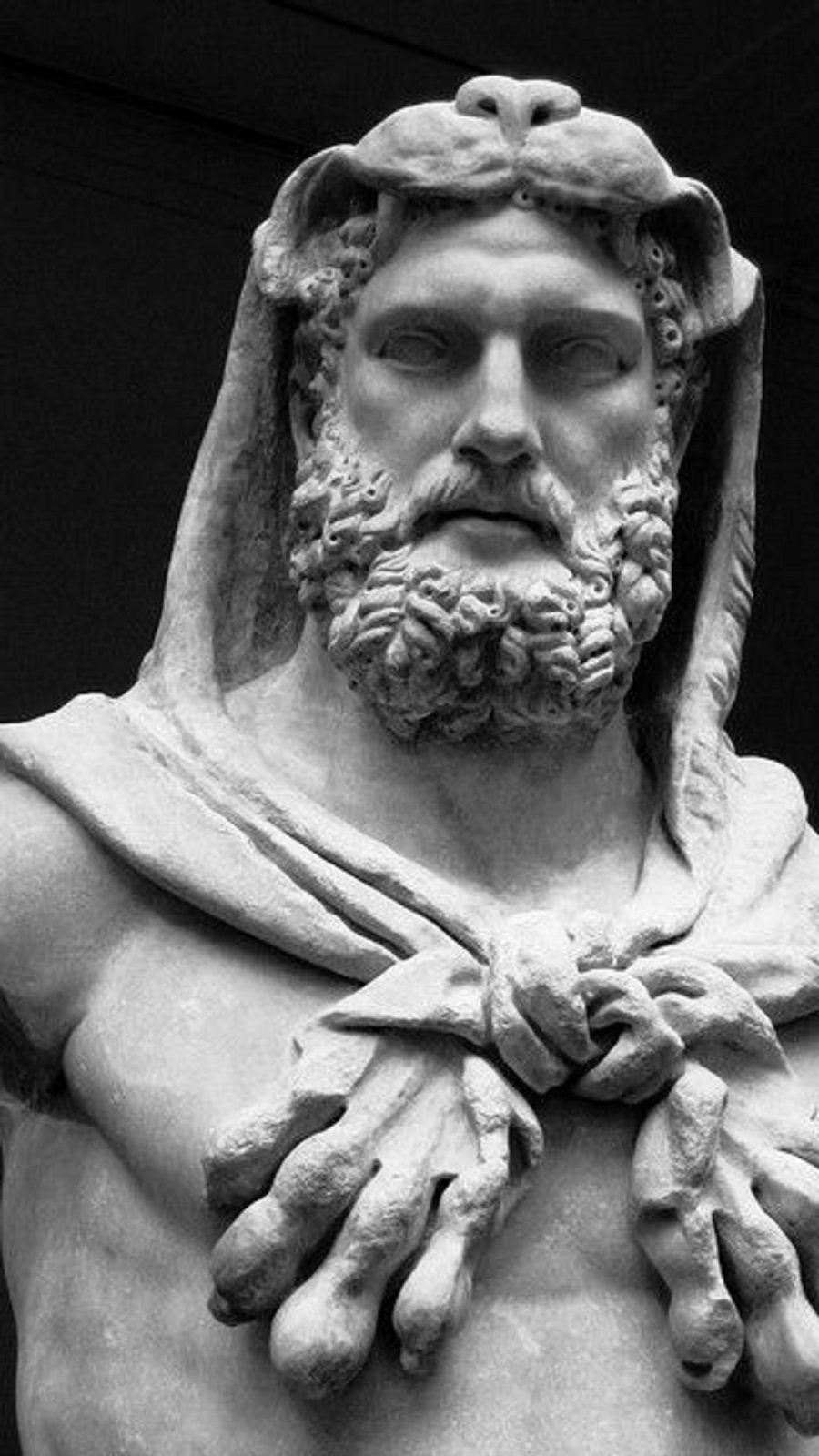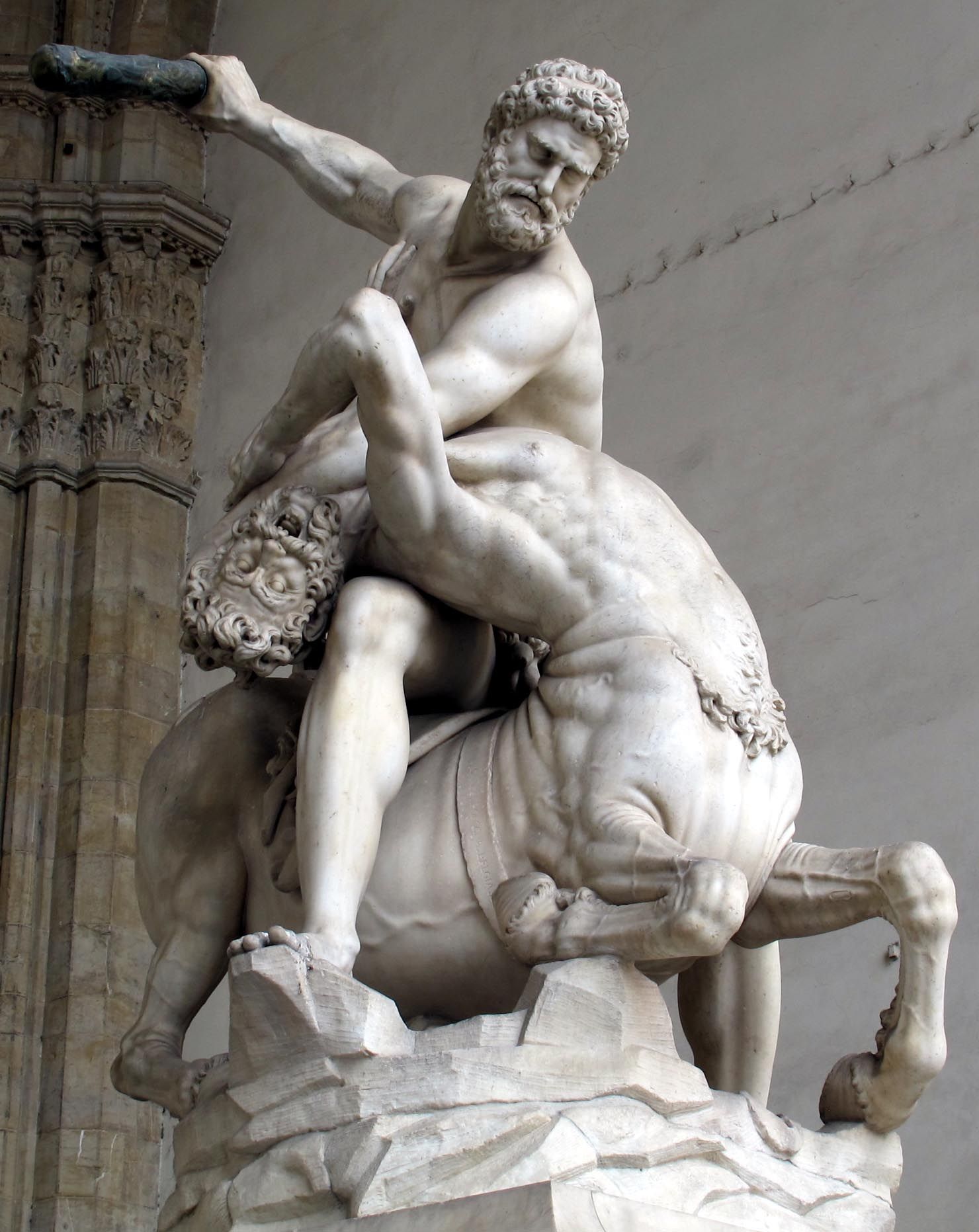In Greek and Roman mythology there is a very famous demigod, who stands out in stories for having great strength and ability. His life was not easy, he himself had to endure difficult challenges with the promise of the gods before his suffering of an eternal life on Mount Olympus. Now yes, let's meet the Hercules myth.

The myth of Hercules: Who is Hercules?
The demigod Hercules or Heracles as he is also known, was one of the most imposing and prominent among all the heroes of ancient Greece, he was himself one who overwhelmed all men whose memory has taken its toll since the beginning of time. He himself had superhuman strength and impulsive frenzy, as well as being a symbol of bravery and masculinity in these times, as well as the most notorious player of the Olympian order, who firmly protected mortals from monstrous creatures and men. wicked.
Despite the fact that his temper and lack of composure caused undeserved trouble for both himself and some innocent mortals, the size of his work was so great that he received the price of immortality. The myth of Hercules, without a doubt, shows this great hero as one of the most emblematic figures in all of ancient Greek history, whose leading role could be seen in hundreds of myths whose chronology cannot be deciphered.
Birth and childhood
The myth of Hercules states that his birth was closely linked to Zeus. Hercules from his birth showed great promise, where as a baby he strangled two serpents sent by Hera into his cradle. Furthermore, he had the best teachers in his childhood, and by the time he reached adolescence he had already surpassed them all in size and strength.
Origins
As is to be expected in almost all accounts of Greek heroes, Hercules was the result of the union of a mortal woman (Alcmene) and a god (Zeus). As for Hercules, even his mother had a remarkable lineage: Alcmene was the granddaughter of Perseus, possibly the greatest hero of ancient Greece before Hercules.
Nacimiento
Disguised as her husband Amphitryon, Zeus slipped into Alcmene's bed the same night as her own husband. So nine months later, Alcmene gave birth to twin sons: Iphicles by her husband Host and Hercules by Zeus.
Upon learning of the situation, Hera, who was a goddess and wife of Zeus, was upset by his infidelity, and not knowing which of Alcmene's children was Zeus's, the goddess secretly placed two snakes in the twins' cradle; Iphicles immediately began to cry when he saw them, but Hercules inadvertently strangled them in an instant. Leaving as obvious before the eyes of the goddess, who was the demigod and who was the mortal between the two.
Curse of Hera
Interestingly, sending the snakes wasn't Hera's first iniquity against Hercules, and it certainly wouldn't be her last. That is, shortly before the birth of Hercules, Hera had persuaded Zeus to promise her that the next child born in the house of Perseus would become a great king and the next her servant.
To tell the truth, it was not so difficult for Hera to convince the god of Olympus to take such an oath, because the next child to be born should according to Zeus be Hercules. But when Zeus gave his word, Hera ordered Ilithyia that she delay Hercules's arrival in the world until Eurystheus' premature birth, an event that would eventually lead to the famous Labors of Hercules.
Mentors of Hercules
According to the myth of Hercules, he had several mentors, such as: his father Host who instructed him on the handling of a chariot. Autolycus, Odysseus's grandfather, instructed him to fight. Eurito (King of Ecalia), instructed the young Hercules in the practice of archery; Castor, the mortal twin Dioscuros, trained this hero in fencing and Harpalycus one of Hermes, who trained Hercules in boxing.
first adventures
At the age of 18, Hercules began a life of adventure, first ending the life of the lion of Cithaeron. A year later at the age of 19, Hercules had already fathered more than fifty children and had also defeated an entire army.
The Lion of Cithaeron
In the myth of Hercules it is related that the lion of Mount Cithaeron concurrently fed on the herds of Amphitryon and Thespius, king of Thespiae. So during his stay with the latter, Hercules ended the animal's life after violently hunting it for fifty days straight. Once Hercules had already defeated the lion, he put on the skin and from then on he used the lion's scalp as a helmet.
Thespius surprised by the power and determination of the young man and wishing that all his daughters had a child with him night after night, this king managed to send each of his fifty daughters to Hercules's bed. And it is through this action, that the demigod has at least one son with each of the daughters of the king of Thespiae.
The heralds of Erginus
Returning gloriously from the hunt, Hercules met the heralds of Erginus, sent by the king of Minyan to collect the annual Theban tribute from one hundred cows. So after knowing the intentions of these Hercules, according to the stories "he cut off their ears, nose and hands, and after tying them with ropes around their necks, he told them that they will bring that tribute to Erginus and the minyans".
Furious at hearing what had happened, Erginus rallied the Minian army and headed towards Thebes, but instead met his death at the hands of Hercules, who then forced the Minians to pay double the original tribute to the Thebans.
The madness of Hercules
In gratitude, Creon king of Thebes gave Hercules the hand of his eldest daughter Megara, with whom he formed a family of two or eight children. However, after being driven mad by Hera's evil plans, Hercules killed them all.
To get rid of this terrible sin, the oracle of Delphi ordered him to serve Eurystheus, the king of Tiryns, for the next twelve years of his life and to fulfill all the duties assigned to him. Originally ten, these would eventually become the famous twelve workers of Hercules.
death and apotheosis
Hercules' second wife was Deianira, sister of the strong hero Meleager. Days after her marriage, Deianira was ominously attacked by the centaur Nessus, whom Hercules subsequently killed with his infallible arrows dipped in the poisonous blood of the Lernaean hydra. With her last breath, Neso convinced Deianira to take her blood-covered (and therefore poisonous) shirt and wear it as a love charm for when she felt her husband was about to die. to be unfaithful.
Deianira kept Nessus' shirt for years before she finally gave it to Hercules, fearing that he had fallen in love with Iole. However, the moment Hercules put on the shirt, the poison began to eat away at his flesh, causing the mighty hero such pain that even he could not bear it.
the funeral pyre
In agony, Hercules built himself a funeral pyre on Mount Oeta and set it up waiting for someone to light it. Nobody was willing to do it, but, fortunately, his friend Poeas passed by and, after convincing him, agreed to set the pyre on fire. In exchange, he got the hero's bow and arrows. Hercules on the other hand, was taken to Olympus where she married Hebe after his apotheosis of a deity.
The 12 Labors of Hercules
Jealous of young Hercules' growing success, Hera asks Eurystheus to use his power on him. So once the Greek hero approaches Eurystheus according to the Oracle of Delphi's demand, she demands that Hercules perform twelve labors. All before the expectation that Hercules perishes in one of them according to the wishes of Hera and Euristeo. These jobs were according to the myth of Hercules:
First job – End the life of the Nemean lion
In this first assignment, Hercules goes to Nemea where there is a beast sent by the goddess Hera, who depleted the population of this town as if it were food. The lion's skin is so protected that no arrow could pierce it.
Knowing the hero could not kill the beast with his bow, he proceeds to strike the lion and strangles it with his bare hands. From then on, he puts on the lion's skin to protect himself in battle, because nothing can penetrate it.
Second job – End the Lernaean Hydra
This creature lives in a swamp, and the smell of its body kills anyone who breathes in its foul fumes. Hercules begins the fight, but discovers that for every head he cuts off the monster, two more appear. At the end, a friend hands him fire so he starts burning all the stumps while he cuts off all the heads. When he reaches the ninth invulnerable head, he cuts it off and buries it under a rock, this being the end of the beast.
Third Job – Catch the Cerinea Doe
The goddess Artemis loved and protected this stubborn deer, which had golden horns. Hercules found it a challenge to capture the delicate doe without hurting her (and keeping Artemis from getting angry). After following the doe for a whole year, he safely took her away.
Fourth Job – Capture the Erymanthian Boar
This creature that was capable of producing huge seismic movements, so Hercules chased the boar up the mountain to a snowdrift. He then caught it in a net and brought it to King Eurystheus, who was so afraid of the beast that he hid himself in a huge bronze vessel.
Fifth Labor – Cleaning the stables of Augeas
The best horses in the world lived in these stables belonging to King Augeas. This place hadn't been cleaned in 30 years, but Hercules was told to clean them all up in one day. To do so, he had two rivers bend so that they flowed into the stables and swept away the dirt.
Sixth Labor – Killing the Stymphalian Birds
These killer birds lived around Lake Stimfalía. Their claws and beaks were sharp as metal and their feathers flew like darts. Hercules scooped them out of their nests with a rattle and then killed them with the poisonous arrows he had made from the Hydra's blood.
Seventh Labor – Capture the Cretan Bull
This wild bull, kept by King Minos of Crete, was said to be mad and breathe fire. Hercules threw the mad beast to the ground and brought it to King Eurystheus. Unfortunately, the king released him and he wandered around Greece, causing terror wherever he went.
Eighth Labor – Trapping the Horses of Diomedes
King Diomedes, leader of the Bistones, fed his bloodthirsty horses human flesh. Hercules and his men fought and killed King Diomedes and fed him to his horses. This caused the horses to be domesticated, so that Hercules was able to lead them to King Eurystheus.
Ninth Labor – Take the belt from Amazon queen Hippolyta
Hercules went to the land of the Amazon, where the queen welcomed him and agreed to give him her girdle for the daughter of Eurystheus. But Hera spread the rumor that Hercules came as her enemy. In the end he had to conquer the Amazons and steal the golden belt.
Tenth Labor – Capture Geryon's Cattle
Geryon is a winged monster with three human bodies, he had a herd of beautiful red cows. He guarded his prized pack with the help of a giant and a ferocious two-headed dog. Hercules killed Geryon, the giant and the dog and brought the cattle to King Eurystheus.
Eleventh Labor – Take the golden apples of the Hesperides
The Hesperides were nymphs. In his garden grew golden apples protected by a dragon with a hundred heads, named Ladon. Hercules made a deal with Atlas, who held the earth. Hercules shouldered the earth while Atlas, the father of the nymphs, picked the apples.
Twelfth Labor – Catch Cerberus
According to the myth of Hercules, he was ordered to capture Cerberus, the three-headed protective dog of the underworld, without using weapons. Hercules fought off the wild heads of the dog, and the dog agreed to go with him to King Eurystheus. Cerberus was soon returned to the underworld unharmed.
Other important Hercules myths
In the line of duty, Hercules participates in many other secondary exploits, such as fighting Hades to save Alceste from the underworld, killing Cycnus who was stalking the pilgrims to Delphi, and joining the search for the Golden Fleece with Jason and the Argonauts.
Likewise, according to the myth of Hercules, he went to Troy to rescue Hesione, daughter of King Laomedonte. This because of Laomedonte's failure to pay homage to the exploits of Poseidon and Apollo for the city, is why the gods sent a sea monster and a plague to destroy the city and its inhabitants.
https://www.youtube.com/watch?v=c1B6kI5X-cA
Before consulting the Oracle of Delphi, he declared that only the sacrifice of his daughter Hesione would prevent the disaster of Troy. Laomedon proceeded to obey the Oracle's recommendation, but offered his famous immortal horses (a gift from Zeus to Laomedon's father, Troas) as a reward for anyone who could save his daughter.
So according to the myth of Hercules he accepted the challenge, finished off the sea creature and saved Hesione. However, Laomedon did not fulfill his promised prize, and years later Hercules returned with an army, with which he sacked Troy and killed the king (thereby making his son Priam the ruler) and delivered Hesione to his friend Telamon. .
If you found this article about the myth of Hercules interesting, we invite you to enjoy these others:



